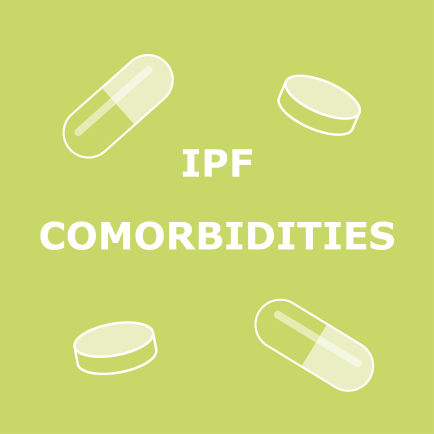Associations Between Concomitant Medications and IPF Progression in Clinical Trial Data

Idiopathic pulmonary fibrosis (IPF) is a complex disease associated with a wide range of respiratory and non-respiratory conditions, including pulmonary hypertension, cardiovascular disease — affecting the heart or blood vessels — acid reflux or gastroesophageal reflux disease, lung cancer, and diabetes.
In addition to anti-fibrotic therapy, IPF patients often receive medications to manage these additional conditions. However, the safety of combining these medications and their impact on IPF progression remains unclear.
Therefore, researchers set out to evaluate the potential associations between combinations of additional medications and disease progression in IPF patients who had taken part in previous Phase 3 clinical trials.
The study, “Concomitant Medications and Clinical Outcomes in Idiopathic Pulmonary Fibrosis,” was published in the European Respiratory Journal.
The team analyzed data from 1,450 IPF patients who received a placebo in the ASCEND (NCT01366209), CAPACITY 1 (NCT00287729), and CAPACITY 2 (NCT00287716) studies, and either placebo or treatment in the INSPIRE study (NCT00075998) — in which the treatment showed no effects on the disease.
Disease progression was defined as at least a 10% decrease in forced vital capacity (FVC), a reduction of 50 meters or more in the 6-minute walk test (6MWD), or death from any cause over one year (52 weeks).
FVC measures the total volume of air that can be blown forcefully following a full inhalation, while the 6MWD test assesses exercise capacity through the distance an individual is able to walk on a hard, flat surface in six minutes.
At the studies’ start (baseline), most patients (more than 86%) reported the occurrence of comorbidities, and were receiving medications to manage these conditions. Patients showed several unique combinations of comorbidities, as well as of type of medications received. Few patients had only one comorbidity or were treated with only one type of medication.
The most frequent concomitant medications were proton pump inhibitors (PPIs) to manage gastrointestinal problems (41.7%), anti-thrombotics to reduce blood clots (41.7%), statins (39.2%), medications to ease respiratory problems (34.2%), and anti-inflammatory medications (29.2%).
In total, 754 patients (52.0%) were receiving one to three medications, and 543 patients (37.4%) were receiving four or more medications.
Analysis of 78 pairs of medication types showed that none of the most frequent combinations — including statins and anti-thrombotics (25.3% of patients), PPIs and anti-thrombotics (20.6%), statins and PPIs (18.8%), and PPIs and respiratory medications (16.4%) — were associated with differences in disease progression.
Results showed, however, that the combination of anti-inflammatory and respiratory medications, diabetes medications and angiotensin 2 receptor blockers (to treat high blood pressure and heart problems), diabetes and thyroid medications, and PPI and metformin (to treat type 2 diabetes) increased the risk of disease progression, while metformin and respiratory medications decreased it.
Metformin was previously shown to decrease lung fibrosis (scarring) in preclinical studies.
The team emphasized that, while these findings are in agreement with previous studies, their interpretation should be done with caution, considering that medication use was assessed only at baseline and medication dose and duration were not evaluated.
In addition, “these findings may not be applicable to real-world populations of patients with IPF, who often have a greater burden of comorbidities and poorer overall health,” the researchers stated.
Future prospective registry studies and controlled clinical trials are required to fully examine the potential association between concomitant medications and disease progression in people with IPF.
Adapted from pulmonaryfibrosisnews.com